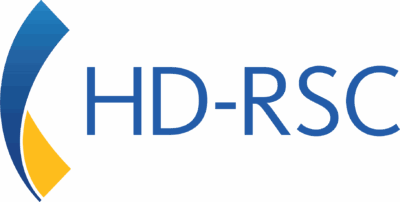The Critical Path Institute Podcast: Connecting the Dots in Rare and Pediatric Diseases with VP Collin Hovinga
In this episode of the Critical Path Institute© Podcast, C-Path VP of Rare/Orphan and Pediatric Disease Programs Collin...


Founded in 2018, HD-RSC leads collaborations that accelerate advancement of Huntington’s disease (HD) therapies to improve the lives of all affected.
Huntington’s disease (HD) is an autosomal-dominant neurodegenerative disorder caused by expansion of a CAG trinucleotide repeat in the huntingtin gene that encodes a mutant huntingtin protein. It is characterized by devastating motor impairment, cognitive decline and neuropsychiatric disturbances. Research suggests that changes in the brain occur up to 15 years prior to the onset of motor symptoms. This highlights the need for a better understanding of disease progression and early intervention, especially because there aren’t any approved disease-modifying therapies for this devastating disease.
HD-RSC leverages the deep knowledge of HD gained from working with patients, families, researchers, neurologists, and clinical scientists, as well as previous experience and learnings from other C-Path neuroscience consortia to achieve success. HD-RSC provides a neutral forum and collaborative framework that facilitates interaction between members of the HD community, including biopharmaceutical companies, regulatory agencies, and HD patients and caregivers. These groups work together to contribute to innovative drug development tools, such as biomarkers, clinical outcome assessments, and quantitative solutions like clinical trial simulator tools that result in publicly available regulatory solutions that can be applied to decrease the time and costs associated with developing novel therapies for HD.
Collectively, HD-RSC’s activities constitute a regulatory science strategy for HD therapeutics that offer additional incentives to drug developers and help further de-risk HD therapeutic development. This consortium advances the development of better treatments that will improve the lives of all affected by Huntington’s disease.
Disease modifying therapies for HD are still lacking. Furthermore, optimal clinical trials in HD remain a field-wide unmet need. HD-RSC identifies and advances drug development solutions that are most needed for the efficient and effective advancement of HD drug candidates to and through clinical trials. Ultimately, HD-RSC will make these solutions available for public use in order to accelerate and de-risk the HD therapy development pathway. Examples of these efforts include:
Terina Martinez, PhD
Executive Director, Rare and Orphan Diseases
Christopher Mezias, PhD
Associate Director, Scientific, CPTA, HD-RSC
Kitty Bogy
Project Coordinator, CPTA, HD-RSC